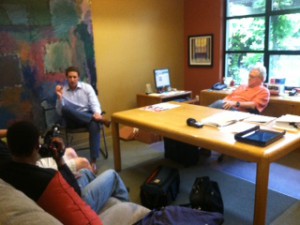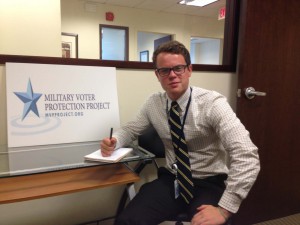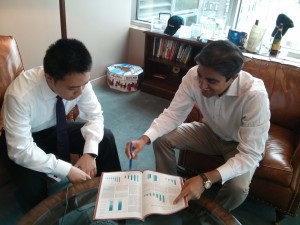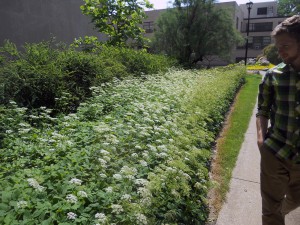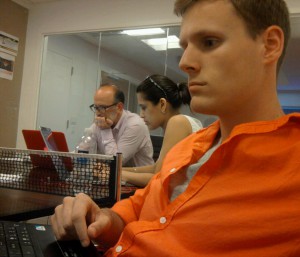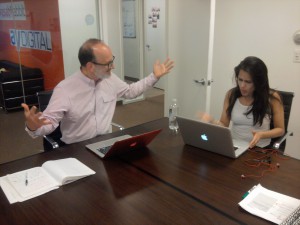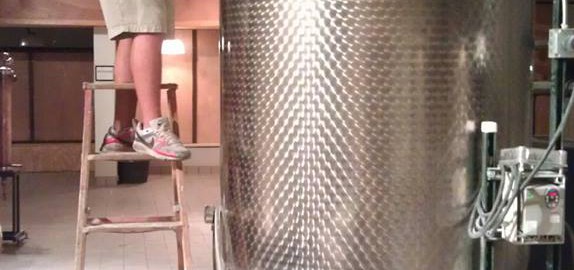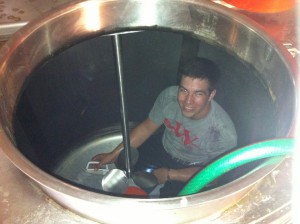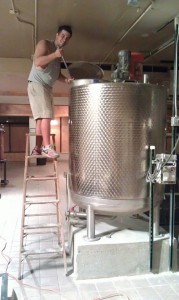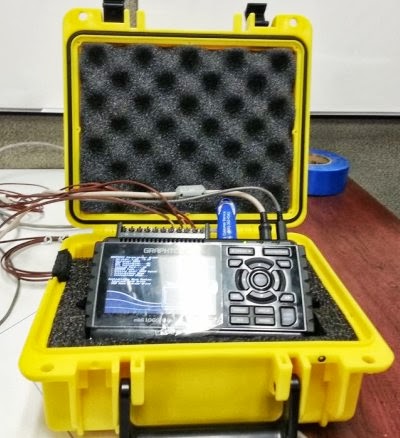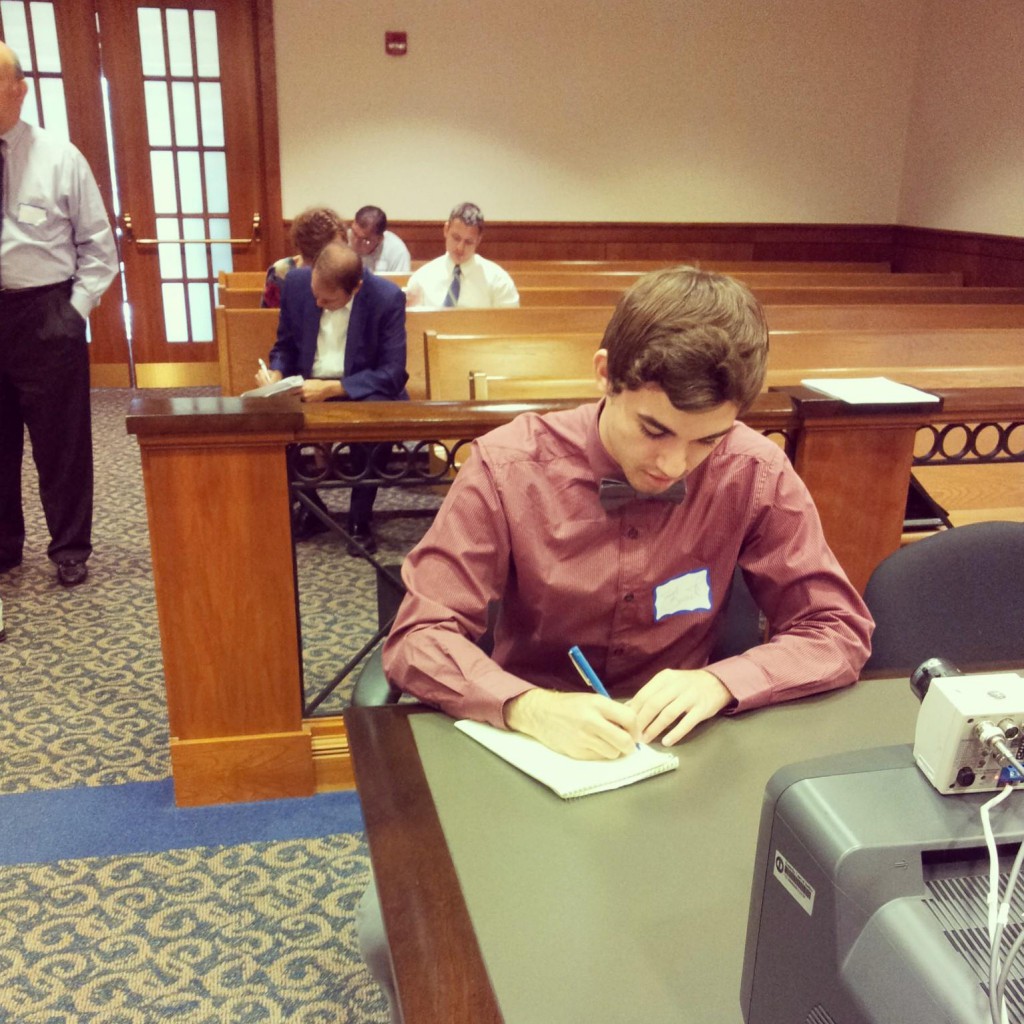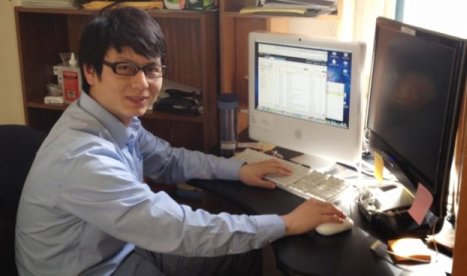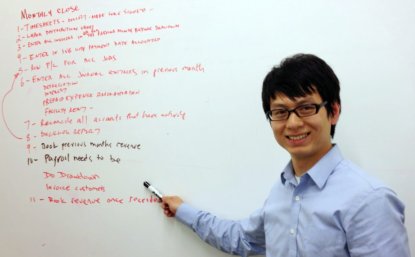Taylor Neal ’14: Everyone at Wabash has heard stories about how amazing our graduate network is, but only recently did I fully understand the extent of that reality. During the Celebration of Student Research, Scholarship, and Creative Work in January, I presented a poster over some research I had conducted with Dr. Porter a couple summers ago. Just before my fellow researchers and I took down our poster towards the end of the hour, we were approached by Mr. Khurram Tahir ‘01. He looked over our poster, asked a few questions, and discussed our research with us. Then, in the single greatest deus ex machina of my Wabash career (and possibly of my entire life), he offered to set us up with an internship at a company he invests in.
Three months later, thanks to the Small Business Internship Fund, I found myself arriving in San Francisco at a small biomedical startup company called PROFUSA. PROFUSA seeks to develop a sensor technology capable of continuous glucose monitoring. My original assignment at the company was to assist the synthetic chemists in their day-to-day operations, but as time went on, I acquired more diverse responsibilities. By my third week, I had been tasked with designing and creating a coating for the sensors. My coating was required to be biocompatible and mechanically durable, but it also had to dissolve easily after injection into the body.
That task is now complete. I have since moved on to other projects involving the composition of the sensors themselves. In just nine weeks, I have worked in a full-blown organic synthesis lab; operated a CT scanner, an SEM, a high-frequency ultrasound, and an autoclave; attended and analyzed a 6-hour live pig study; and even created my own batch of sensors. My project this week was to help the company cut costs on ballistic gel, which is used to test injection methods. I have just finished optimizing a formula for homemade gel which will save the company roughly $400, and next week I will conduct my own independent in vivo study through a contact at Duke University. Needless to say, no two days are alike at PROFUSA.
Aside from the great diversity of my work, one of the greatest benefits of working with a small company is the visibility of all of its operations. PROFUSA currently employs only twelve people, and after the first two weeks I knew all of them on a first name basis. Most of my lab work involves modifying our finished product, but I share the same lab space with the people who synthesize the very organic molecules that make up the sensor technology. Every day I am exposed to the various facets of the company, and because of that I am able to see clearly how each individual project contributes to the overall goal. There is a tremendous sense of camaraderie, and more importantly, everyone here is fully invested in the company’s success. A small triumph in one area motivates the rest of us to work even harder, and any problems that arise are quickly and decisively dealt with by the conjoined effort of the entire team. It has been a truly inspiring experience so far, and I couldn’t imagine a better use of my summer as I prepare to apply to graduate schools.
When I’m not working, I often spend my time exploring the city and its mountainous outskirts. I live in the Mission District, which is known for its exceptional Mexican food. I’ve walked through the nearby Daly City, hiked to the top of San Bruno Mountain, dove to the bottom of Lake Merced, and even climbed San Pedro Rock in Pacifica. The collective experience has been without any doubt the best summer of my life, and I couldn’t be more thankful to PROFUSA, Mr. Tahir, Career Services, and of course Wabash for making it possible.



